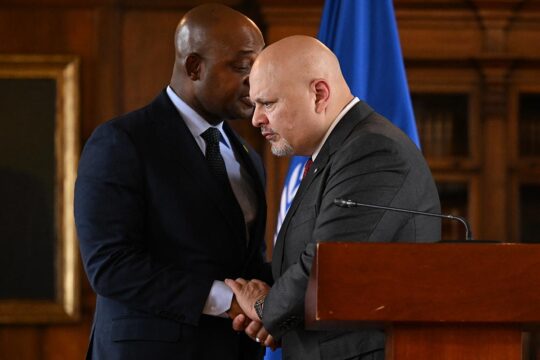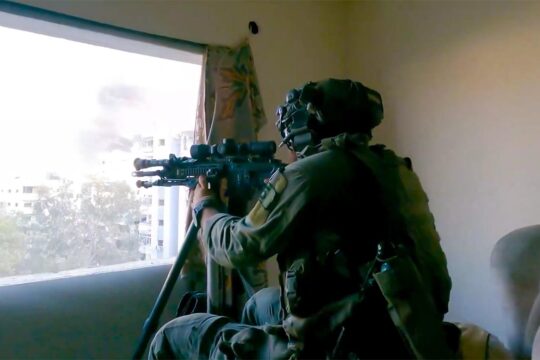It took 6 months for a decision to be issued. It was a tortuous process. Several dozens of states and organizations intervened in a “circus of amicus curiaes submissions over the summer,” as remembers Sergey Vasiliev, law professor at Open University in Amsterdam. All this “was unnecessary, nonsensical, and mismanaged,” he states in this podcast on the fly prepared by our partners at Asymmetrical Haircuts, Janet Anderson and Stephanie van den Berg. And now we’ve got this “early Xmas present” from the International Criminal Court (ICC): arrest warrants have been delivered to Israel’s Prime Minister Benjamin Netanyahu and former Defense Minister Yoav Gallant – as well as to top Hamas army chief Mohammed Deif, who Israel says they have killed last July.
So now that the prosecutor and the judges have done their job, thinks Vasiliev, “the ball is in the states court.” And it looks confusing. In The Netherlands where the ICC sits, the Prime Minister immediately said that they would comply with the decision and arrest Netanyahu if he came to this country. But a little bit later his far-right coalition partner Geert Wilders said the warrants were horrendous and that he would go and visit his friend Netanyahu in Israel soon. Obviously the US denounced the ICC decision. Canada and Italy said they would comply, the UK and Germany stayed silent, France “took note”.
The credibility of the ICC has been partially restored, thinks Vasiliev. But it now has staunch enemies among powerful non-member states, and its member states themselves may be more divided than ever. This happens a week before the ICC has its annual meeting in The Hague – the Assembly of State Parties, that opens on December 2.
 ASYMMETRICAL HAIRCUTS
ASYMMETRICAL HAIRCUTS
This podcast has been published as part of a partnership between JusticeInfo.net and Asymmetrical Haircuts, a podcast on international justice produced from The Hague by journalists Janet Anderson and Stephanie van den Berg, who retain full control and independence over the contents of the podcast.



